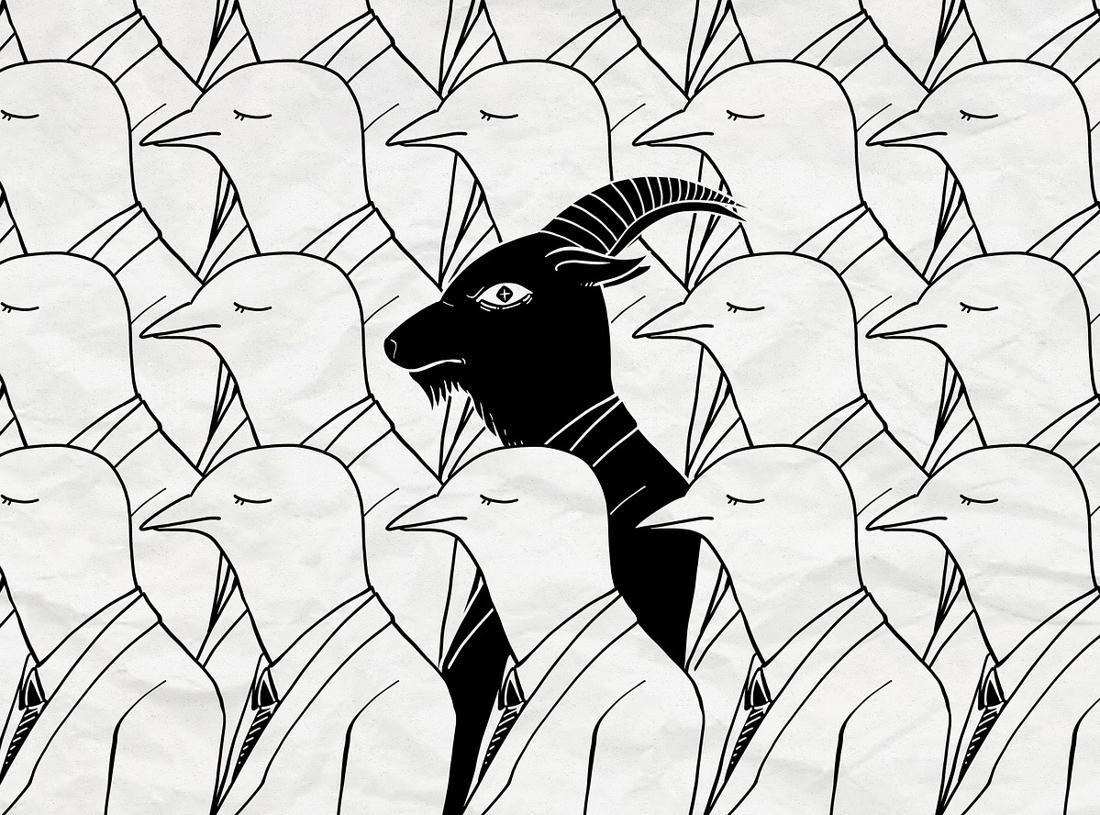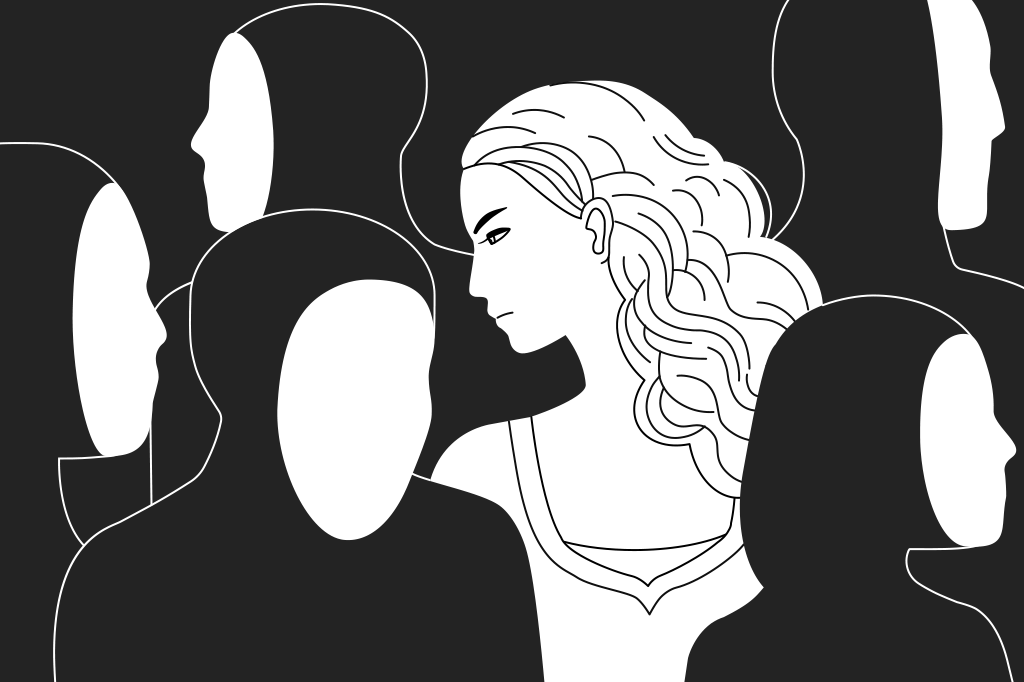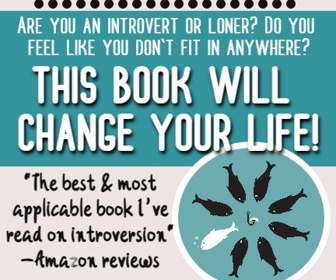What does being socially inept mean? Are you such a person? And is it really such a big deal after all? Today, we will answer all these questions. Let’s start with the definition of social ineptness.
Socially inept definition
Being socially inept means lacking social skills, feeling awkward in social situations, and not knowing how to behave in a social setting.
Most people intuitively feel what they need to say and how they need to behave when they attend a birthday party or meet someone new. It just comes naturally.
But a socially inept person is a different story. They feel uneasy and awkward at social gatherings – like a fish out of water. They always seem to say the wrong things and respond to other people’s words and questions in an inappropriate manner.
To sum up the definition, social ineptness means being unable to understand and follow the rules of accepted social behavior.
Signs of social ineptness
If you suspect that you are such a person, read through the signs below.
1. You feel uneasy in social settings
The most telling sign of a socially inept person is that they feel uncomfortable in social situations. This may come in the form of anxiety or just general uneasiness.
Whether you are invited to a friend’s party full of new people or run into a neighbor in the elevator, you feel awkward and try to get away as quickly as possible.
You feel like a fish out of water – you never know what you are expected to do or say, so even the most trivial social situation is draining you emotionally and mentally.
2. The conversation just doesn’t flow
Communicating with someone you don’t know well or at all is one of the most challenging things for you. You don’t know how to ask appropriate questions, say the right things, and show that you are interested. You absolutely don’t know how to have small talk.
For this reason, the conversation doesn’t flow, which makes both you and the other person feel awkward. Most probably, it ends quite quickly, and the person you were just talking to decides to focus on someone else.
The only way you can have an engaging conversation with someone is when the other person is really friendly, outgoing, and interested in you. In other words, when they are socially savvy. They pick up the threads of a conversation and keep it going.
3. Awkward silence
Your conversations don’t flow and are full of awkward silences for the very same reason – you just don’t know what to say.
Every time you are talking to a stranger or someone you are not close to, you end up giving one-word answers and looking at your shoes. So the conversation fades away before even starting.
When it happens and awkward silence sets in, you feel so uncomfortable that you wish you could just vanish into thin air.
4. You are often excluded from group activities and projects

Both at work and parties, you end up being excluded from group activities.
Doing things together with others in a group is not your cup of tea, and your supervisors and friends already know this. So when your friends decide to play a board game, you end up being left out of it.
Similarly, you are assigned solo tasks and play a totally passive role in group projects at work. You have nothing against it – after all, you feel more comfortable working on your own.
However, sometimes, watching others working or playing together can make you feel painfully alone and excluded from the group.
5. You struggle to put your thoughts into words and often say the wrong things
You may be a pretty intelligent person, but if you are socially inept, the words that come out of your mouth don’t sound the way you meant them to.
It’s so weird because the thoughts in your head make perfect sense. But when you are trying to explain them to others, something always goes wrong, and most of the time, people misunderstand you.
You may sometimes say something inappropriate and even rude without meaning to offend other people. You simply don’t feel where the line of appropriateness lies.
6. You misunderstand other people’s words and questions
Because of your social ineptness, you may also misinterpret what other people say. It happens because you are feeling so anxious and uneasy that you often focus more on your own uncomfortable experiences than social interaction itself.
So, you don’t listen attentively and misunderstand others’ words or ask them to repeat their question. For example, you may take an innocent question as offensive or give a totally improper response.
This puts the other person in a difficult position too as they need to explain what exactly they meant.
The result? A totally awkward situation. You feel stupid and embarrassed, and the other person feels uncomfortable too. After that, they will most likely prefer to talk to someone else.
7. Sometimes you say more than you should and regret it later
Your nervousness at social events often makes you chatter. Sometimes it can take you to getting too personal and revealing things about yourself that you regret later.
In an attempt to fill awkward silences or make an impression on others, you may tell a story from your life that is too personal or just irrelevant. It may sound like a weird thing to say to a person you just met.
After that, you realize what you did and feel stupid and exposed. You think,
“Why on earth would I tell him about the writing contest I won in the 6th grade? I’m sure he thinks I’m a weirdo”
In reality, the story you told is most likely not a big deal, but you still regret it and beat yourself up for your social ineptness.
8. Your body language is confusing, including your eye contact
It’s not only your words that sound wrong – your body position, facial expression, and eye contact may also look weird to others.
The way we feel shows up in our movements and gestures. Since social settings make you feel uneasy, your body language will be the reflection of your emotional state.
You may slouch and sink your head into your shoulders as if you are trying to look small and invisible. Your body position will also reveal that you are not open to communication – you will keep your hands in your pockets or cross your arms.
But the most important body language cue is your eye contact. Since other people make you feel uncomfortable, you will avoid looking them in the eye. You will struggle to maintain eye contact with strangers and the people you are not close to.
All this gives those around you the non-verbal hints that you are not interested in communication and they’d better avoid you.
9. You often feel ignored and left out

You normally tend to stay away from group activities, but sometimes you still try to blend in with others.
For example, you may have something to add to a conversation or an idea to share with others. This is when you speak up with a suggestion at an office meeting or try to participate in a group discussion.
But even when you do, other people don’t seem to pay attention. They skip your suggestions and ideas and focus on something else instead.
This can be painful as it looks like others ignore you. As a result, you feel left out, as if you are an alien among the ‘normal’ people.
It doesn’t happen on purpose though – your lack of social skills is to blame. People instinctively pull away from those who come across as weird, unfriendly, or arrogant. And yes, social ineptness can sometimes make you look this way.
10. You don’t like meeting new people and don’t know how to make friends
Only the idea of meeting new people makes you feel uncomfortable. You don’t know how to approach them and what to talk about with them. That’s why you don’t enjoy yourself at big social gatherings.
Introductions are a real challenge – you don’t know how to introduce yourself without looking weird and feeling awkward. Situations where you are left alone with someone you don’t now are a living nightmare for you.
Because you make a confusing first impression on others, it makes sense that you find it difficult to make friends.
Most likely, people assume that you are unfriendly and uninterested in getting to know them, so your new acquaintances rarely grow into something bigger.
11. Your social circle has remained unchanged for years
Since you struggle to make friends, your social circle doesn’t change through the years. You may still hang out with your school or college friends.
It’s not a necessarily bad thing though. After all, some people are happier with few social connections. For example, socially awkward introverts are fine with having just a couple of friends.
But if you are a naturally outgoing person with social ineptness, you may feel incomplete and lonely. Deep inside, you may want to expand your social circle, but all your attempts to meet new people fail because of your poor social skills.
12. You act weird and clumsy in public
Socially inept people often act weird and clumsy at social gatherings. It’s their nervousness that makes them behave this way. They always step on someone’s foot, drop things, laugh in an odd manner, and make inappropriate jokes no one gets.
If you are such a person, you just can’t feel relaxed in a social setting. You feel tense and anxious, and this is what causes this clumsiness. No need to say that spilling your glass of wine on someone’s dress doesn’t help you relax or make a good first impression either.
When you do something like this, you feel embarrassed – as if everyone is judging and laughing at you. This is particularly true if you also suffer from social anxiety.
As a result, you withdraw and don’t utter a word for the rest of the evening. Most likely, you will try to leave the gathering as soon as possible.
13. You don’t feel other people
Social ineptness can make you misunderstand other people’s needs and personal boundaries. You basically don’t feel what they want right now and what they would like you to say or do.
For example, if you are a socially inept extrovert, you may behave in a too pushy manner, violating others’ boundaries and making them feel uncomfortable. If you are an introvert, you may look too aloof and emotionally detached, so other people pull away because they don’t see a reciprocated interest.
The same is true about the emotional needs of those around you. For example, if someone is upset and is looking for some emotional support, you may feel awkward and withdraw instead of consoling them. The knowledge of how you are supposed to behave in this or that social situation doesn’t come naturally to you.
14. You overanalyze your social performance
After a social event, you analyze your behavior, words, and overall performance. You recall every awkward thing you said, focus on your mistakes, and blame yourself for being such a weirdo.
But you also overthink it even before you attend a party or meeting. Your mind gets full with the discouraging pictures of awkward silences, inappropriate questions, and upcoming embarrassment. You visualize how people turn away when you are trying to talk to them and how you finally stay alone – as always.
Maybe you secretly dream about a magical transformation into a social butterfly everyone admires and respects. But the harsh reality tells a different story, and every time you try to socialize with other people, your clumsy, socially inept self comes out.
15. You may end up avoiding social interaction entirely
Because of these disappointing experiences every time you attend a party or meet a new person, you may finally give up. You may end up avoiding any kind of social interaction in an attempt to protect yourself from all this anxiety and awkwardness you feel.
If you are an introvert, it can be a natural thing to do since your needs for social interaction are not very high. You are pretty happy with a small circle of friends anyway. But if you are a natural extrovert, loneliness and disappointment may set in.
Why being socially inept is fine

Whether your social ineptness is a real problem or not depends on your need for communication.
It all goes down to two basic scenarios:
- If you are a socially inept extrovert, you can always improve your social skills.
- If you are a socially inept introvert, you are happier with less socialization anyway.
Thus, if you are a loner, it makes no sense to force yourself to socialize more in order to overcome your awkwardness. It won’t bring you happiness and won’t turn you into the life and soul of a party anyway.
If you are an outgoing person though, it’s possible to improve your ability to communicate. Whether you are an introvert or an extrovert, ask yourself the following question,
Do I want to become more sociable and make new friends?
Maybe you don’t really need this and just believe that you do because it’s a ‘normal’ thing to do.
In any case, if you feel that your social ineptness causes too many problems in your personal and professional life, you can always work on your social skills. But this is a topic for a different article.



